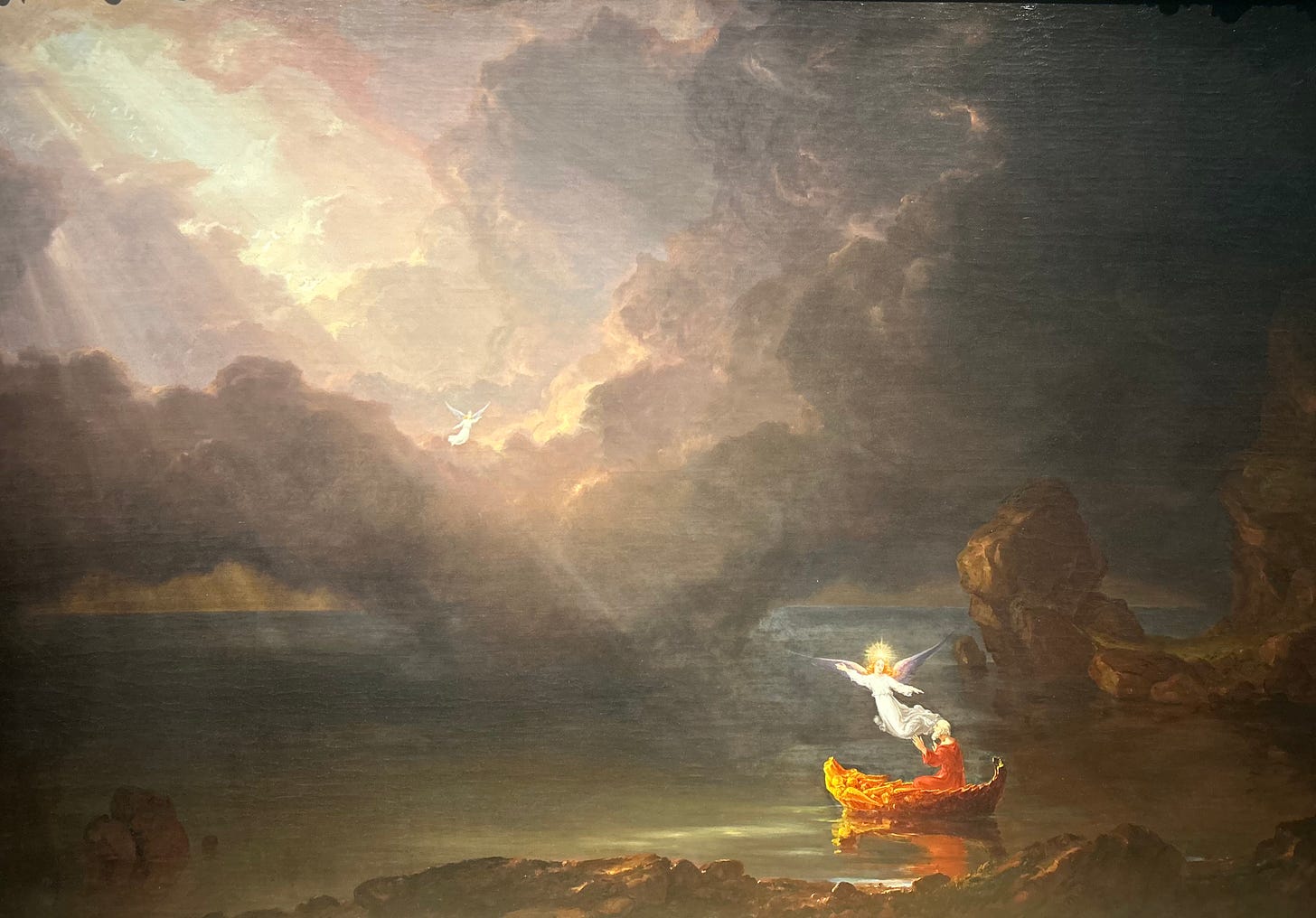Do not go gentle into that good night (audio)
by Dylan Thomas
Inspired by the Poetry Foundation’s selection of this piece as the “Poem of the Day,” I gift you Dylan Thomas reading it himself. This poem was first published in the journal Botteghe Oscure in 1951. It was written in 1947 while Thomas visited Florence with his family. It has been suggested that the poem was written for Thomas's dying father, although he did not die until just before Christmas in 1952.
The full text is below—though I highly, highly recommend listening to the audio, either in tandem with reading the poem or with your eyes closed / laid prone / rattled by Thomas’ vibrato.
Do not go gentle into that good night, Old age should burn and rave at close of day; Rage, rage against the dying of the light. Though wise men at their end know dark is right, Because their words had forked no lightning they Do not go gentle into that good night. Good men, the last wave by, crying how bright Their frail deeds might have danced in a green bay, Rage, rage against the dying of the light. Wild men who caught and sang the sun in flight, And learn, too late, they grieved it on its way, Do not go gentle into that good night. Grave men, near death, who see with blinding sight Blind eyes could blaze like meteors and be gay, Rage, rage against the dying of the light. And you, my father, there on that sad height, Curse, bless, me now with your fierce tears, I pray. Do not go gentle into that good night. Rage, rage against the dying of the light.



Fade to Black
It’s not easy to “rage against the dying of the light.”
It takes too much energy now in short supply.
Why fight the final fade-out to exhaustion?
What’s one supposed to do? Keep labouring on?
Continue to weave the tapestry of existence
as it unravels between arthritic fingers?
Or stoop to pick up another skein of fading life
even though standing up again is painful?
It turns out that Dylan Thomas, who coined
this rallying cry, died not from an alcoholic
“insult to the brain” caused by excessive drinking,
but from pneumonia and a dim ‘celebrity’ doctor,
Falkenstein, who pumped him full of morphine
having diagnosed the poet with delirium tremens,
maybe under the influence of the writer’s initials...
Such a dramatic reading. It begs the question why poets today don't read their work in this way.